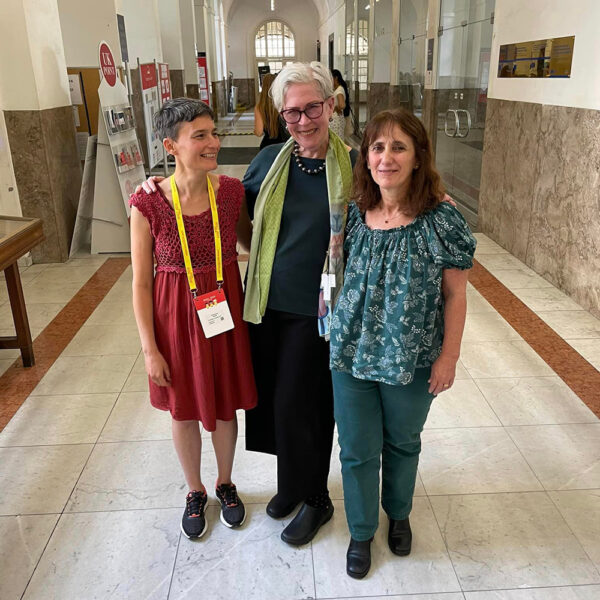
The Global South is defined as having relatively low income and reduced access to education and healthcare. It includes Africa, the Caribbean, parts of Asia and Oceania and, importantly, our neighbors in Latin America. There are many studies of early language from Europe, the United States, and Canada published in the high-impact scientific literature, but less representation from Latin America, owing in part to cultural and linguistic barriers. Developmental science seeks to broaden representation through international collaboration.
Researchers and clinicians often measure early vocabulary to better understand the process of acquisition, characteristics and needs of different communities and, to identify children who would benefit from extra support as they prepare for school. There are many instruments for this purpose for children learning English, fewer for children learning Spanish, and fewer, if any, for children learning an Indigenous language.
Dr. Margaret Friend was honored to participate in two collaborations that begin to address this issue. She worked with Dr. Celia Rosemberg’s team in Argentina to develop measures of vocabulary in the Indigenous language, Qom, and in Argentinian Chaco-Spanish (the dialect in the region where Qom is spoken). The measures are built on a paradigm she developed over the past two decades at SDSU and represent a decade of fieldwork by Dr. Rosemberg’s team in Argentina! Qom is an endangered language, and our research shows attrition of Qom, relative to Spanish, around the time that children enter school. This work provides essential support for policies to preserve important cultural knowledge and practices among Indigenous people in Argentina.
Concomitantly, Dr. Friend led a collaborative team from the United States and Mexico to bring a new measure of Spanish vocabulary and grammar to publication. This represents a decade of work by Dr. Donna Jackson-Maldonado, of the University of Queretaro in Mexico, who passed away in 2021. The MacArthur Inventario del Desarrollo de Habilidades Comunicativas III (IDHC-III) is the first measure of its kind for children two-and-a-half to four years of age normed on a large representative sample of Spanish-speaking children in Mexico. It covers a crucial period of development corresponding to important decisions about children’s schooling. The publication of this instrument provides a principled way of making these decisions.
References
- Rosemberg, C., Ojea, G., Alam, F., Garber, L., Stein, A., De Benedectis, C., Jackson-Maldonado. D., & Friend, M. (2024). Assessment of vocabulary comprehension in Bilingual Qom-Spanish Indigenous children in Northern Argentina: Evidence for education, language preservation, and psycholinguistic theory. Special Issue: Social and cultural contexts where multilingualism interacts with developmentCognitive Development, 71, 101488.
- Jackson-Maldonado, D., Friend, M., Marchman, V., Weisleder, A., Auza, A., Conboy, B., Rubio-Codina, M., & Dale, P. (2024). The MacArthur Inventario del Desarrollo de Habilidades Comunicativas III: A measure of language development in Spanish-speaking two- to four-year-olds. Language Development Research 4, 361-398.

